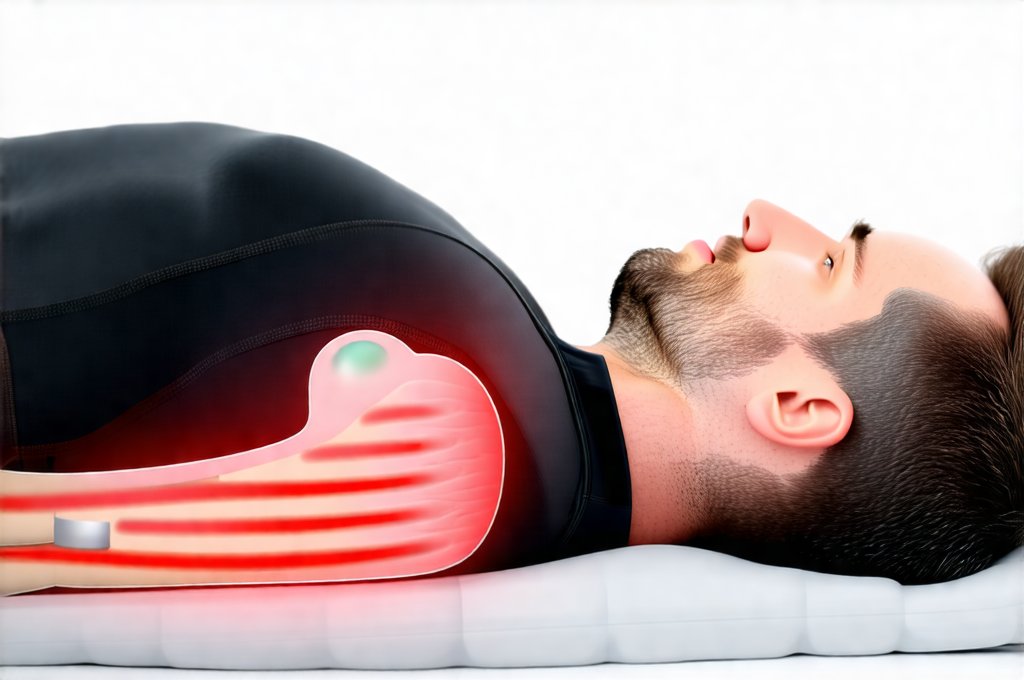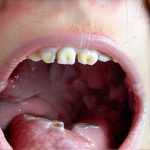Gastroesophageal reflux disease (GERD) is a surprisingly common condition, impacting millions worldwide. While many associate it with heartburn and indigestion – and those are certainly core symptoms – the manifestations of GERD can be far more diverse and perplexing. One particularly unsettling experience for sufferers is dizziness when lying down. This seemingly unrelated symptom often leads to confusion and anxiety, as individuals struggle to understand why a digestive issue could trigger neurological sensations like lightheadedness or vertigo. Understanding this connection requires delving into the complex interplay between the gastrointestinal system, the nervous system, and even our body’s natural positioning while resting.
The sensation of dizziness when lying down isn’t always directly caused by GERD itself; rather, it often arises as a secondary consequence of the underlying mechanisms at play within the disease. These include fluctuations in blood pressure, vagal nerve stimulation triggered by reflux episodes, and even the discomfort that can lead to anxiety – all potential contributors to those unpleasant spinning or swaying sensations. It’s vital to remember that dizziness is a broad symptom with many possible origins, so identifying GERD as the root cause requires careful consideration and often, professional medical evaluation. This article aims to explore the connection between GERD and dizziness when lying down, outlining potential causes, coping strategies, and when to seek further help.
Understanding the Link Between GERD and Dizziness
The relationship between GERD and dizziness isn’t straightforward, but it centers around several key physiological mechanisms. First, the act of lying down can actually worsen reflux symptoms for many individuals. When upright, gravity helps keep stomach acid where it belongs; however, when horizontal, it becomes easier for acid to flow back up into the esophagus. This increased reflux can stimulate the vagus nerve – a crucial cranial nerve responsible for regulating numerous bodily functions including digestion and heart rate. Vagal stimulation, while normal in many contexts, can sometimes lead to a drop in blood pressure (a phenomenon called vasovagal syncope), resulting in dizziness or lightheadedness.
Furthermore, the discomfort associated with GERD – the burning sensation in the chest, the sour taste in the mouth – can induce anxiety and stress. Anxiety itself is a well-known trigger for dizziness, as it activates the sympathetic nervous system (the “fight or flight” response), potentially causing hyperventilation and further fluctuations in blood pressure. It’s also important to note that some medications used to treat GERD, such as proton pump inhibitors (PPIs), can occasionally have side effects which may contribute to dizziness, although this is less common. Understanding your body’s acid reflux and its impact on overall health is crucial for effective management.
Finally, the position itself can influence blood flow. Lying flat can alter venous return – the flow of blood back to the heart – potentially impacting cardiac output and leading to a temporary decrease in cerebral blood flow. This is more likely to occur in individuals who are already prone to low blood pressure or have underlying cardiovascular conditions. Therefore, dizziness when lying down isn’t necessarily a direct result of acid reflux itself, but often a consequence of the cascade of events triggered by it and influenced by individual physiological factors. If you suspect food sensitivities might be playing a role in your GERD symptoms, exploring that connection can also be beneficial.
Lifestyle Adjustments and Management Strategies
Managing GERD-related dizziness requires a multi-faceted approach that addresses both the underlying reflux and the resulting symptoms. Lifestyle modifications are often the first line of defense, focusing on minimizing reflux episodes and reducing overall discomfort. These include: – Elevating the head of your bed by 6-8 inches using blocks or a wedge pillow; this utilizes gravity to help keep stomach acid down during sleep. – Avoiding trigger foods such as caffeine, alcohol, chocolate, fatty foods, and spicy meals. – Eating smaller, more frequent meals instead of large ones. – Not eating at least 2-3 hours before lying down. – Losing weight if overweight or obese, as excess abdominal pressure can exacerbate reflux.
Beyond dietary and positional changes, stress management techniques are crucial. Techniques like deep breathing exercises, yoga, meditation, or progressive muscle relaxation can help mitigate anxiety and its associated dizziness. Regular exercise (within tolerance) is also beneficial for overall health and can reduce stress levels. Hydration plays a role too; staying adequately hydrated helps maintain blood volume and supports healthy cardiovascular function. It’s important to remember that these strategies aren’t about eliminating GERD entirely – which may not always be possible – but rather about managing the symptoms and minimizing their impact on daily life, including reducing the likelihood of dizziness when lying down. Knowing how to know when a food is no longer safe can also help you avoid triggering episodes.
Investigating Other Potential Causes of Dizziness
While GERD can certainly contribute to dizziness when lying down, it’s crucial to rule out other potential causes. Dizziness is a non-specific symptom with an extensive differential diagnosis. This means many conditions outside of GERD could be responsible. Common culprits include: – Inner ear problems (such as benign paroxysmal positional vertigo – BPPV, or Meniere’s disease). – Cardiovascular issues (like arrhythmias or low blood pressure). – Neurological conditions (such as migraines or multiple sclerosis). – Anemia (iron deficiency). – Medication side effects.
A thorough medical evaluation is essential to determine the underlying cause of dizziness. This typically involves a detailed medical history, physical examination including neurological assessment, and potentially further testing such as audiometry (hearing test), blood tests to check for anemia and electrolyte imbalances, an electrocardiogram (ECG) to assess heart rhythm, and possibly imaging studies like MRI or CT scan if indicated. Dismissing alternative causes without proper investigation could lead to delayed diagnosis and inappropriate treatment. It is vital that you consult with a healthcare professional to receive the appropriate evaluation. If you have gastritis without bleeding, it’s important to understand how it might interact with your GERD symptoms.
When to Seek Medical Attention
Dizziness when lying down related to GERD often responds well to lifestyle modifications and over-the-counter medications like antacids. However, there are instances where seeking medical attention is crucial. Do not hesitate to seek immediate medical help if you experience any of the following: – Severe dizziness accompanied by chest pain, shortness of breath, or fainting. – Dizziness that comes on suddenly and intensely. – Neurological symptoms such as blurred vision, difficulty speaking, weakness in limbs, or numbness. – Persistent dizziness that doesn’t improve with lifestyle changes or over-the-counter remedies.
If your GERD is poorly controlled despite treatment, or if the dizziness significantly interferes with your quality of life, it’s also time to consult a doctor. They may consider prescribing stronger medications for GERD (such as PPIs or H2 receptor antagonists) or recommend further investigations to rule out other causes of dizziness. Remember, self-diagnosing and self-treating can be risky. A healthcare professional can provide an accurate diagnosis, develop a personalized treatment plan, and ensure that your symptoms are adequately addressed. Understanding the relationship between alcohol and acid reflux is also important for managing GERD effectively.
The Role of Medication and Further Testing
Medication adjustments might be necessary if GERD is believed to be the primary driver of dizziness when lying down. Your doctor may evaluate whether current medications for GERD are contributing to side effects, or explore alternative options. For example, switching from a PPI to an H2 receptor antagonist could potentially minimize side effects in some individuals. However, never change your medication regimen without consulting your doctor first.
Further testing might include esophageal manometry (to assess the function of the esophagus) and pH monitoring (to measure acid exposure in the esophagus). These tests can help confirm a diagnosis of GERD and guide treatment decisions. If other potential causes of dizziness are suspected, additional investigations may be necessary, as outlined previously. The goal is to obtain a comprehensive understanding of your symptoms and identify any underlying contributing factors so that you receive appropriate care. A collaborative approach between you and your healthcare provider is the key to effectively managing GERD-related dizziness and improving your overall well-being. If you’re struggling to find relief, consider what to cook when everything triggers you for some gentle dietary options. Finally, understanding colon polyps can help you stay proactive about your overall gastrointestinal health.


















